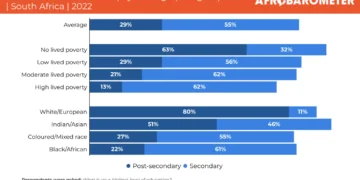
Social media has become an integral part of our lives, shaping the way we connect and communicate with one another. While it may be notorious for its ability to entertain and engage, social media platforms like LinkedIn, Twitter, and Facebook have also emerged as powerful tools for job seekers.
Gone are the days of solely relying on Newspaper vacancy adverts and traditional resumes and cover letters. These days, more employers are turning to social media to find and evaluate potential candidates. Whether you’re actively searching for a job or simply trying to establish your professional online presence, harnessing the power of social media can greatly enhance your chances of landing your dream job.
One of the most significant advantages of leveraging social media in your job search
is the opportunity to showcase your skills, experiences, and achievements in a more
dynamic and personalized way.
Platforms like LinkedIn allow you to create an extensive professional profile, complete with a detailed work history, endorsements from colleagues, and recommendations from employers. These features provide employers with a comprehensive overview of your qualifications, which can often be more meaningful and impactful than just a static resume.
Furthermore, social media platforms enable you to engage with industry professionals, join relevant groups and communities, and stay up to date with the latest trends and developments in your field. By actively participating in conversations and sharing relevant content, you can demonstrate your expertise and passion, while also expanding your professional network.
Just like everything, social media has its good and its bad. For example, a “call out”,
wrong impression or a false allegation can go “viral” in seconds and tarnish corporate image of corporate organizations.
Hence, one crucial aspect of recruitment is the background check. This stage entails verifying previous employment histories, reference and guarantor verification as well as character checks.
Interestingly, social media has become the go-to platform for a first-hand check-out
of an applicant’s true character. And since many people feel most comfortable
behind their keypads, this has been an easy task for HRs and recruiters in recent times.
Job seekers have been known to lose job opportunities after online character
verifications and some common reasons include online trolling, religious insensitivity, tribal slurs, spreading false information, inciting mass disturbance, gender biases, indecent online challenges and generally being a nuisance. Basically, organizations that take pride in their corporate image would typically turn away from candidates who potentially could bring their corporate name to disrepute.
In other words, while social media platform is a powerful tool for job seekers, it may exposes the undesirable traits of prospective employees therefore ot is in everyone’s best interest that internet users conduct themselves in the best possible manner at all
time.




































































 EduTimes Africa, a product of Education Times Africa, is a magazine publication that aims to lend its support to close the yawning gap in Africa's educational development.
EduTimes Africa, a product of Education Times Africa, is a magazine publication that aims to lend its support to close the yawning gap in Africa's educational development.

